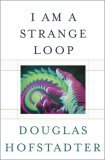May 31, 2007
With the recent addition of ‘analog’ records to Google Book Search (discussed in my last post), the Advanced Book Search can be used as a rough way to find new books on your favorite topic, although the lack of any subject search limits its functionality.
Searching by publication date between 2007 and 2008 for books with ‘consciousness’ in the title, for example, returned 99 titles (results will vary). If the title search doesn’t give the right focus, a broader search can be performed for words or phrases in the title plus description, as in this example.
Comments (0)
- book search,new books
Google recently announced that Google Book Search has added “records for millions of other books that still just exist in the analog world,” a development that makes it a much more comprehensive book search site. Alongside the scanned books and those with limited previews there are now records for books that have not yet been digitized.
Here is an example of the kind of information Google has made available for ‘Metaphors We Live By,’ an influential 1980 cognitive science book by George Lakoff and Mark Johnson. A search on the exact title phrase brings up over 700 book results, showing other books that discuss or cite ‘Metaphors We Live By.’ The book page has reviews, references from web pages, references from books, references from scholarly work, description from the book cover, other editions, links to buy the book or to find it in a library.
For comparison, here is the Amazon page for the same book; among the features are the ability to “look inside the book” at about 10 pages, including the table of contents. Amazon also displays 1599 books that cite “Metaphors We Live By” (with some duplicates); and, in the section “Customers who bought this item also bought” there is a link to “Explore similar items,” which seems to do a good job of pulling out related works.
LibraryThing is another good source of book information; its page for Lakoff & Johnson includes a tag cloud, recommendations (another good source of related items), reviews, member ratings, links to Wikipedia, plus a separate “book information” page that has the traditional card catalog data – LC and Dewey call numbers, subject headings, isbns.
Until the ultimate mashup appears, I’ll want to look at all three sites.
Comments (1)
- book search
May 28, 2007
A “diavlog” between David Chalmers and John Horgan – on consciousness, the ‘hard problem,’ limits of physical theory, the concept of information, the Matrix, and the possibility of pure consciousness. Chalmers is the author of The Conscious Mind and Horgan, a science journalist, is the author of Rational Mysticism.
Comments (0)
- consciousness
May 27, 2007
 I am almost finished reading this book and just want to note a few points that have struck me along the way.
I am almost finished reading this book and just want to note a few points that have struck me along the way.
First, if there are any awards for back-of-the book indexing, Hofstadter should get one! In keeping with the book’s theme, the index includes a reference to itself: “index, ordeal of making a good, 374.” The index also features a wonderful extensive list of “analogies, serious examples of” – such as “between brain and oil refinery” or “between edibility and provability” or “between Leafpilishness and Consciousness.”
The wordplay is quite lively throughout; one of my favorite examples is the use of the term “freewilly-nilly” in a discussion of free will (“we move willy-nilly but not freewilly-nilly.”) Hofstadter accepts that we have will but not that it is free will.
My interest in the book really started to pick up at Ch. 13, where issues of the self and consciousness begin to come to the fore. Leading up to that there is a lot about levels of analysis, Gödel, and the idea of the strange loop.
Hofstadter equates the self with consciousness and develops the idea that “every normal adult human soul is housed in many brains at varying degrees of fidelity and therefore every human consciousness or “I” lives at once in a collection of different brains, to different extents.” (p 259) Personal identity is not coextensive with the physical body but has a “blurriness” enabling low-resolution instantiations of a self to appear in other minds.
In Ch. 21 Hofstadter discusses Derek Parfit’s Reasons and Persons and finds Parfit’s views to be compatible with his own.
A video called “Victim of the Brain,” based on Hofstadter’s earlier work, is available from Google Video.
Wikipedia has entries for strange loop and for the book I Am a Strange Loop, though the latter is just a stub at this time.
Comments (0)
- consciousness,self
May 24, 2007
The Neurophilosophy blog points to “The Subjective Brain” by Pete Mandik. Mandik is posting chapters of this work-in-progress online. So far “Ch 0. Introduction: Consciousness and the Invisible Brain” and “Ch 1. The Metaphysics of the Neuron” are available. Mandik also has posted his unpublished doctoral dissertation, a number of articles and book chapters, and some presentations.
Comments (0)
- consciousness



